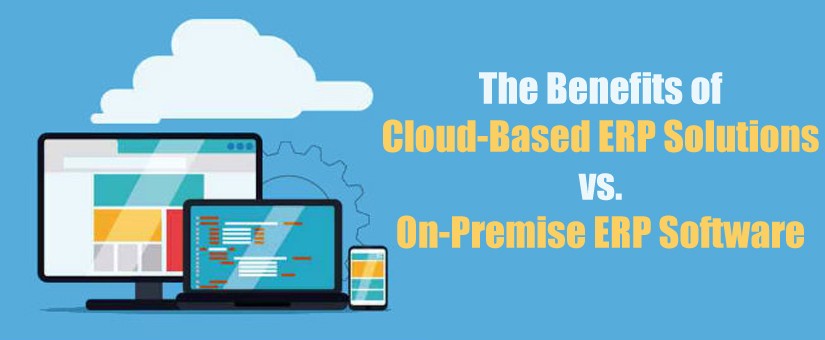ERP solutions for business have been remarkable from the very first day. There is no denying the fact that ERP has made work very systematic across industries. They have been able to cut down on operational and overhead costs, improve productivity and also increase the efficiency of workers.
However, the software has gone through the scanner several times, and the platform has had a shift in the recent years – from being on-premise for moving to the cloud.
Initially, ERP ran only on one computer and the person accessing that computer would be able to use the software; or if anyone knew the login ID and password for the software would be able to use it.
This type of ERP is known as on-premise ERP, and though it was popular at one time, it is facing stern competition from cloud-based ERP solutions.
Below listed are the advantages of cloud-based over the on-premise ERP –
1. Accessibility
The basic point of difference between an on-premise and cloud-based ERP system is the ability to access the software.
At a time when the entire world is making use of cloud services, using on-premise ERP software may seem to be a tad backdated. Also, the fact that it can be accessed from anywhere and anytime keeps cloud-based ERP way ahead of the on-premise format.
There will be the static login ID and password, but since you will be using the service of a service provider, you will not have to use a single device to access the software.
2. Cost-effectiveness
Buying software is a one-time investment, but there are more costs involved than one would think. For example, business is required to pay every time the software is to be upgraded.That is the case with on-premise ERP software.
One has to pay one-time perpetual license fees, and there are recurring fees for support, training, and updates. The cost of maintaining the physical server is quite high.
However, cloud-based ERP has a much lower investment. The upgrades will be done automatically by the service provider and there is no separate investment for any physical server.
3. Better security
One of the main reasons why there has been a radical shift to cloud-based ERP is because of their enhanced security. However, when on-premise and cloud-based services are compared, the latter has a slight edge. This is because of the multi-layered security offered by the software vendor. There is a guaranteed secure cloud platform that has multiple security features.
On-premise ERP, on the other hand, is also very secure because you have full control over the software. However, the fact that some constant updates and patches have to be installed makes it a very tricky situation for the users.
There is a dilemma of whether to spend money or not on the update and this can bring the security down.
4. Speed of deployment
A crucial part of ERP solutions is their deployment speed.
It is no secret that ERP solutions need careful planning and takes a considerable time for deployment. However, here too, cloud-based solutions have the upper hand over on-premise ERP software.
Since on-premise ERP needs to be installed on your computer, there is a need to have a separate IT infrastructure and additional hardware, which consumes much time.
However, with cloud-based ERP, one does not have to worry about any of this. There is hardly any time involved in the deployment (with no additional hardware required) because such a cloud-based system can be accessed from any device with internet connectivity. Also, the scalability of cloud-based ERPs is much more than on-premise ERP.
Using ERP solutions has become a necessity these days because of their amazing benefits for managing businesses.
However, when you have an option to go for a better cloud-based ERP software that is less risky and genuinely flexible, it is better to opt for the latest technology (cloud) rather than sticking back to the right old solutions of the past.
So, what is your take? Have you already moved to the cloud or plan to do so shortly?
Please share your valuable inputs here.
